第100章 VI(2)
>From the hospital Claude went down into the hold where half-a-dozen of his company were lying ill. The hold was damp and musty as an old cellar, so steeped in the smells and leakage of innumerable dirty cargoes that it could not be made or kept clean. There was almost no ventilation, and the air was fetid with sickness and sweat and vomit. Two of the band boys were working in the stench and dirt, helping the stewards. Claude stayed to lend a hand until it was time to give Fanning his nourishment. He began to see that the wrist watch, which he had hitherto despised as effeminate and had carried in his pocket, might be a very useful article. After he had made Fanning swallow his egg, he piled all the available blankets on him and opened the port to give the cabin an airing. While the fresh wind blew in, he sat down on the edge of his berth and tried to collect his wits. What had become of those first days of golden weather, leisure and good-comradeship? The band concerts, the Lindsborg Quartette, the first excitement and novelty of being at sea: all that had gone by like a dream.
That night when the Doctor came in to see Fanning, he threw his stethoscope on the bed and said wearily, "It's a wonder that instrument doesn't take root in my ears and grow there." He sat down and sucked his thermometer for a few minutes, then held it out for inspection. Claude looked at it and told him he ought to go to bed.
"Then who's to be up and around? No bed for me, tonight. But I will have a hot bath by and by."
Claude asked why the ship's doctor didn't do anything and added that he must be as little as he looked.
"Chessup? No, he's not half bad when you get to know him. He's given me a lot of help about preparing medicines, and it's a great assistance to talk the cases over with him. He'll do anything for me except directly handle the patients. He doesn't want to exceed his authority. It seems the English marine is very particular about such things. He's a Canadian, and he graduated first in his class at Edinburgh. I gather he was frozen out in private practice. You see, his appearance is against him. It's an awful handicap to look like a kid and be as shy as he is."
The Doctor rose, shored up his shoulders and took his bag.
"You're looking fine yourself, Lieutenant," he remarked.
"Parents both living? Were they quite young when you were born?
Well, then their parents were, probably. I'm a crank about that.
Yes, I'll get my bath pretty soon, and I will lie down for an hour or two. With those splendid band boys running the hospital, I get a little lee-way."
Claude wondered how the Doctor kept going. He knew he hadn't had more than four hours sleep out of the last forty-eight, and he was not a man of rugged constitution. His bath steward was, as he said, his comfort. Hawkins was an old fellow who had held better positions on better boats,--yes, in better times, too. He had first gone to sea as a bath steward, and now, through the fortunes of war, he had come hack where he began,--not a good place for an old man. His back was bent meekly, and he shuffled along with broken arches. He looked after the comfort of all the officers, and attended the doctor like a valet; got out his clean linen, persuaded him to lie down and have a hot drink after his bath, stood on guard at his door to take messages for him in the short hours when he was resting. Hawkins had lost two sons in the war and he seemed to find a solemn consolation in being of service to soldiers. "Take it a bit easy now, sir. You'll 'ave it 'ard enough over there," he used to say to one and another.